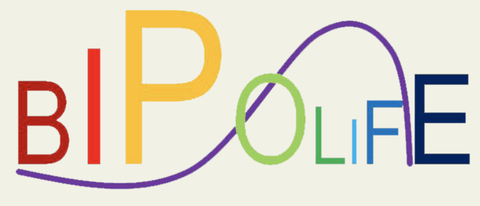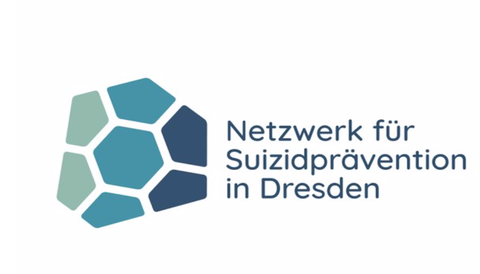Research Networks
Table of contents
- Affective Dysregulation - Optimizing Prevention and Treatment (ADOPT)
- Addiction: Early Recognition and Intervention Across the Lifespan (AERIAL)
- AgeDifferent.de
- Autism Spectrum Disorders Network (ASD-NET)
- BipoLife
- Collaborative Research Center Transregio (CRC TR 265)
- Collaborative Research Center Volition and Cognitive Control (CRC 940)
- Development of S3-Guideline “Psychosocial Therapies for Severe Mental Illness”
- ENIGMA
- Forschungsgruppe 2698 Kognitive Theorie des Tourette Syndroms - ein neuer Ansatz (FOR 2698: Tec4Tic )
- Leipzig Psychiatry Network (LeiP#netz)
- Interdisciplinary networks
- International Group for The Study of Lithium Treated Patients (IGSLi)
- National Research Data Infrastructure for Personal Health (NFDI4Health)
- Network for early recognition and intervention in bipolar disorders (NERIBID)
- Netzwerk für Suizidprävention Dresden (NeSuD)
- transCampus©
- Promoting Help-seeking using E-technology for Asolescents (Pro-HEAD)
- PROTECT-AD
- R-LiNK
- Smart Medical Information Technology for Healthcare (SMITH)
Affective Dysregulation - Optimizing Prevention and Treatment (ADOPT)
The ADOPT (Affective Dysregulation - Optimizing Prevention and Treatment) Consortium integrates internationally established, highly experienced and interdisciplinary research groups. The work program encompasses:
- epidemiology, including prevalence of symptoms and disorders
- development and evaluation of screening and assessment tools
- stepped care approaches for clinically useful personalized medicine
- evaluation of an easily accessible and cost-effective online intervention
- evaluation of an intensive personalized modular outpatient treatment in a cohort of children with Affective Dysregulation who live with their parents and in a cohort of children with Affective Dysregulation who live in out-of-home care.
Addiction: Early Recognition and Intervention Across the Lifespan (AERIAL)
The AERIAL research network The AERIAL research network (Addiction: Early Recognition and Intervention Across the Lifespan) aims to explore new diagnosis and treatment options for addiction diseases. These are among the most common and cost-intensive diseases in western industrialized nations. Many current diagnosis and treatment approaches focus exclusively on individual forms of addiction. Furthermore, associated parallel diseases, e.g. depression, are often overlooked. The research projects of the AERIAL network deal with alcohol and nicotine addiction by investigating new ways of early detection and patient access to the care system. Existing instruments for early detection are to be evaluated, others are to be newly developed. At the same time, new treatment concepts for alcohol and nicotine addiction as well as for accompanying depression are to be researched. The focus is explicitly on internet- and smartphone-based applications.
AgeDifferent.de
The Institute of Social Medicine, Occupational Medicine and Public Health (ISAP) at the Medical Faculty in Leipzig (S. Riedel-Heller) leads the BMBF funded consortium project AgeDifferent.de. The project applies a theory-based approach to examine gender-specific trajectories for healthy ageing well into the later years of life with a view to identifying gender-specific discrepancies in health indicators and their determinants as well as gender-specific intervention/treatment recommendations and prevention strategies. Three BMBF-funded population and general practitioner-based age cohorts (LEILA75+, AgeCoDe/AgeQualiDe, AgeMooDe) dating back to as early as 1997, also conducted by ISAP, were harmonized and subjected to integrative analysis. The data platform is used extensively by the site facilities as well as cooperation partners (e.g. international consortia such as COSMIC). The consortium also includes the Department of Psychiatry and Psychotherapy at the University of Bonn Medical Clinic (Prof. Dr. M. Wagner), the Institute for Health Economic and Health Services Research at the Center for Psychosocial Medicine, Hamburg-Eppendorf University Medical Center (Prof. Dr. H.-H. König), and the Institute for General Medical Research at Hanover Medical University (Birgitt Wiese).
Autism Spectrum Disorders Network (ASD-NET)
The research association ASD-Net (Autism Spectrum Disorders Network) investigates new diagnosis and treatment options for autism spectrum disorders. Autism spectrum disorders is the term used to describe the various forms of the disease, such as early childhood autism and Asperger's syndrome. The number of autism spectrum disorder diagnoses has risen continuously in recent years.The diagnosis of autism spectrum disorders is considered error-prone and particularly difficult. At the same time new and more effective therapies are needed. The ASD-Net will address these issues. A new, internet-based diagnostic tool will be developed in the so-called "Diagnostics Cluster" of the network. The aim is to simplify and accelerate diagnosis. In the "Therapy Cluster" the therapeutic potential of oxytocin in the treatment of autism spectrum disorders is investigated. The "Health Economics Cluster" will collect relevant data for the health care of patients with autism spectrum disorders.
BipoLife
Bipolar Disorder is a severe and heterogeneous mental disorder. Despite great advances in neuroscience over the past decades, the precise causative mechanisms at the transmitter, cellular or network level have so far not been unraveled. As a result, individual treatment decisions cannot be tailor-made and the uncertain prognosis is based on clinical characteristics alone. Although a subpopulation of patients have an excellent response to pharmacological monotherapy, other subpopulations have been less well served by the medical system and therefore require more focused attention (e.g. patients at early stages of bipolar disorder, patients with an unstable highly relapsing course, patients with acute suicidal ideation). To address these areas of unmet needs, a research consortium of ten universities across Germany has therefore implemented a 4 year research agenda including three randomized controlled trials, one epidemiological trial and one cross-sectional trial (BipoLife). The topics under investigation will be the improvement of early recognition, specific psychotherapy, and smartphones as an aid for early episode detection and biomarkers of lithium response. A subset of patients will be investigated utilizing biomaterials, neuroimaging (fMRI), and neurophysiology (EEG).
Collaborative Research Center Transregio (CRC TR 265)
The main risk factors for mortality and morbidity worldwide are alcohol and tobacco consumption. While knowledge of individual factors that promote initiation and maintenance of substance use is increasing, there is still a lack of sound knowledge of modulating factors and mechanisms that contribute to the loss and regaining of control over drug use. The aim of our CRC TR 265 is to identify the trajectories of loss and regaining control over drug use, to study the underlying neurobiological and learning mechanisms and to develop mechanism-based therapies.
Collaborative Research Center Volition and Cognitive Control (CRC 940)
Based on an integrative theory of volition and self-control, research in CRC 940 focuses on impairments of cognitive control, performance-monitoring, and value-based decision making as putative vulnerability factors as well as mediating mechanisms in mental disorders like substance use disorders, behavioral addictions, anorexia nervosa, and impulsivity-compulsivity spectrum disorders. The CRC on Volition and Cognitive Control is a consortium of more than 70 scientists and combines expertise from experimental psychology, cognitive-affective neuroscience and neuroimaging, clinical psychology, psychiatry neurology to investigate mechanisms, modulators, and dysfunctions of volitional control on psychological and neural levels of analysis
Development of S3-Guideline “Psychosocial Therapies for Severe Mental Illness”
The Institute for Social Medicine, Occupational Medicine and Public Health (ISAP) (Prof. S. Riedel-Heller) at the Medical Faculty in Leipzig has developed (in cooperation with Clinic II for Psychiatry and Psychotherapy at Ulm University (T. Becker), among others), updates and hosts the trans-diagnostic S3-Guideline “Psychosocial therapies for severe mental illness” published by the German Association for Psychiatry, Psychotherapy and Psychosomatics (DGPPN). The guideline focuses on severely mentally ill patients and provides a systematic research synthesis of reviews and meta-analyses with a view to formulating clear treatment recommendations. All research and updates take place in Leipzig, and the guideline is agreed upon through exchange between experts and stakeholders. In the context of intensive dissemination and implementation activities, it is available in a short version, long version and various informational versions for patients and their relatives. These patient guidelines present the evidence pertaining to the effectiveness of psychosocial treatments in laymen’s terms and inform readers of the available care. ISAP is currently conducting the project “Implementation of patient guidelines on psychosocial therapies in severe mental illness (IMPPeTuS), funded by the Joint Federal Committee (G-BA) innovations fund. To enable the transfer of the individual update processes of the national mental health guidelines into a concerted “living guideline” process, members of Mental Health Dresden-Leipzig jointly work in a methodological research project (Guide2Guide) that, too, recently received funding by the Joint Federal Committee (G-BA) innovations fund.
ENIGMA
The ENIGMA Consortium brings together researchers in imaging genomics, neurology and psychiatry, to understand brain structure, function, and disease, based on brain imaging and genetic data. The Network is working to achieve several goals:
- To create a network of like-minded individuals, interested in pushing forward the field of imaging genetics.
- To ensure promising findings are replicated via member collaborations.
- To share ideas, algorithms, data, and information on research studies and methods.
- To facilitate training, including workshops and conferences on key methods and emerging directions in imaging genetics.
There are 50 active ENIGMA working groups that are combining their data to achieve the large samples necessary to detect the modest gene effect sizes that are the rule rather than the exception for complex traits.
Forschungsgruppe 2698 Kognitive Theorie des Tourette Syndroms - ein neuer Ansatz (FOR 2698: Tec4Tic )
Gilles de la Tourette's Syndrome (GTS) is a common multifaceted neuropsychiatric spectrum disorder clinically characterized by the presence of motor and vocal tics and is considered a neurological developmental disorder. Tics are usually classified as movement disorders. However, tics differ in many ways from 'classical' movement disorders and are closer to physiologically occurring but excessive movements and actions. The special relationship between 'tics' and urges points to altered perceptual processes and the strong attention-dependency of the tic attribute to disturbances in attention and action selection processes, so that perception and action aspects must be taken into account in a comprehensive concept for explaining GTS. The Theory of Event Coding (TEC) provides a conceptual framework for this. This fundamentally new approach will be pursued in this research group initiative TEC4Tic.
Leipzig Psychiatry Network (LeiP#netz)
The Leipzig Psychiatry Network LeiP#netz is a network initiative to strengthen the psychiatric-psychosocial community in Leipzig. The players in the field of psychiatric care have joined forces in Leip#netz to develop psychiatric care in a theory-based manner (Functional Basic Model of Community Psychiatric Care according to Steinardt and Wienberg) and to identify weaknesses in the care of the severely mentally ill. Leipzig is considered a model region for the targeted development of psychiatric care. The following steps have been taken so far: Development of a set of instruments for mapping psychiatric services on the basis of the basic functional model according to Wienberg and Steinhardt, which maps all necessary functions and identification of gaps in care and targeted development. Translation to other regions for the development of psychiatric care in line with demand is in progress. Founding initiators of the Leip#netz-Initiative are Dipl.-Psych. Thomas Seyde, (psychiatry coordinator of the City of Leipzig), Prof. Dr. med. Katharina Stengler (Chief Physician at the Department of Psychiatry, Psychosomatics and Psychotherapy at Helios Park-Klinikum Leipzig, the largest care clinic on site) and Prof. Dr. med. Steffi Riedel-Heller (Chair of the Institute of Social Medicine, Occupational Medicine and Public Health (ISAP) at the University of Leipzig). Currently, the BMAS-funded network is working on the assessment of the consequences of the corona pandemic and its implications for the care of severely mentally ill patients.
Interdisciplinary networks
The Department of Psychiatry and Psychotherapy at ULMC has a long-standing collaboration with communication scientists at the Hanover Center for Health Communication (Prof. Eva Baumann), currently jointly involved in longitudinal studies on public attitudes and stigma (funded by the Thyssen foundation) and a BMG funded project to develop and disseminate media guidelines for stigma-free reporting on substance use disorders (FairMediaSucht). The department is part of international networks like the International Study of Discrimination and Stigma Outcomes (INDIGO) network (www.indigo-group.org) and the Self-Stigma Research Collaborative (SSRC, https://selfstigma.psych.iastate.edu). Together with partners in Hamburg, Vancouver and Vienna, G. Schomerus regularly hosts the international participatory scientific congress “The Subjective Side of Schizophrenia” that annually attracts up to 500 participants with lived experience, relatives and people working in the mental health field from Germany, Austria and Switzerland. Prof. Dr. Schomerus has close collaborative ties to NGOs and charities devoted to mental health, such as Insanely Human e. V. (“Irrsinnig Menschlich e.V.”, https://www.irrsinnig-menschlich.de/) and the local Leipzig Alliance against Depression.
International Group for The Study of Lithium Treated Patients (IGSLi)
The International Group for The Study of Lithium Treated Patients (IGSLi) is dedicated to a European research tradition characterized by precise documentation and analysis, as well as by the long-term commitment and cooperation of members and staff. Their main objectives are:
- to conduct excellent, thorough, and innovative research, focusing primarily on affective disorders with particular emphasis on lithium
- to be at the forefront of current developments in medical research and care in affective disorders, and to play an active role in the changes being made to patients with affective disorders
- to facilitate the joining together of scientific data from the IGSLi member centers for the purpose of a joint analysis
- to work in close cooperation with other research institutions and professional associations on an international level
The IGSLi centers all have long and outstanding experience in the long-term treatment of patients with affective disorders with lithium. The centers’ research is based on a.) the precise, standardized, and computer-based documentation of the course of illness before and during treatment, and b.) on modalities of treatment, which are comparable for all centers. The centers agree upon the same principles, which are embodied in the letter of understanding.
National Research Data Infrastructure for Personal Health (NFDI4Health)
The University of Leipzig (with IMISE, ZKS Leipzig and the LIFE project) as well as the Robert Koch Institute (RKI) participate in the National Research Data Infrastructure for Personal Health Data (NFDI4Health) initiative. Within the framework of this initiative, a research data infrastructure for personal health data is to be established in multidisciplinary cooperation of scientists from all over Germany with the aim of merging epidemiological, public health and clinical research. NFDI4Health acts complementary to the medical consortia of the National Research Data Infrastructure (nfdi) and will increase the visibility and accessibility of research data, contribute to a reputational gain for researchers sharing their data, and promote new collaborations.
Network for early recognition and intervention in bipolar disorders (NERIBID)
Early signs of bipolar disorder often arise during adolescence or early adulthood. Despite the early onset of these preclinical symptoms, bipolar disorder is often late or misdiagnosed causing a delay in adequate treatment. Benefiting from the experience of the early recognition of psychosis, NERIBID aims to strengthen synergies by maintaining a German-speaking network of scientists in the fields of bipolar disorders and early recognition of mental disorders in order to develop joint scientific and clinical standards and design and conduct collaborative study projects.
Netzwerk für Suizidprävention Dresden (NeSuD)
The Network for Suicide Prevention in Dresden (NeSud) aims to create a regional cross-sectoral network of low to high-threshold aid structures for different target groups and offers a universal prevention program on suicide awareness in secondary schools to pupils aged 12 to 18 years. In the second part of the project, young people between the ages of 12 and 18 are directly informed about mental health and stress as well as about care services. The aim is to reduce the stigmatization of mental stress and crises, but also mental emergencies, and thus to improve the use of professional help services.
transCampus©
The transCampus© initiative was initiated in 2015 and builds a unique partnership between two of Europe’s leading academic institutions, King’s College London and TU Dresden. The transCampus© aims to coalesce the resources and individual strengths of both institutions to create a complementary academic and clinical platform stimulating, supporting and enabling collaborations and transnational projects. It acts as a wide academic stage within students from both universities can move freely and benefit from the respective academic programs. Beyond the contribution to joint projects, PIs from the transCampus® provide their international perspective, networks and their access to the excellent infrastructure at the KCL’s Institute of Psychiatry, Psychology & Neuroscience (IoPPN) to our site. IoPPN is a top-ranking world-leading center of mental health research (second after Harvard and leading in Europe) that promotes cutting edge collaborative research within an interdisciplinary context.
Promoting Help-seeking using E-technology for Asolescents (Pro-HEAD)
Pro-HEAD (PROmoting Help-seeking using E-technology for ADolescents) is a BMBF-funded consortium (2017-2021; funding stream: Child and Adolescent Health “Healthy – for a lifetime”) with the aim of developing, implementing and evaluating special internet-based interventions that promote the mental wellbeing of children and adolescents, prevent the manifestation of mental illness/disorders and promote help-seeking among children and adolescents with mental problems, and to gain insights into the predictors and obstacles of help-seeking . The study encompasses a total of 15,000 children and adolescents from the age of 12 at five recruitment centers (Hamburg, Heidelberg, Leipzig, Marburg, Schwäbisch Gmünd). The Department of Psychiatry and Psychotherapy at UMCL leads the Pro-HEAD subproject on “help for symptoms of depression” (Prof. Dr. Rummel-Kluge).
PROTECT-AD
Anxiety disorders - such as panic disorder, agoraphobia, other phobias or generalized anxiety disorder - are among the most expensive and stressful diseases in the health care system due to their early onset and chronic course. Even if they are diagnosed correctly, the vast majority of affected patients do not receive appropriate and timely therapy. The consequences are serious: patients often suffer for decades. The PROTECT-AD research program, aims to improve the most effective and scientifically proven form of therapy, "cognitive behavioral therapy", in various ways and change it in such a way that it becomes accessible to all those affected and effective in long term.
R-LiNK
Bipolar disorder is a highly prevalent mental disorder associated with a high incidence of suicide. Lithium remains the key treatment for prevention of bipolar disorder relapse and has a proven anti-suicidal effect. Whilst many patients experience significant improvement with lithium treatment, a substantial minority shows a sub-optimal response.
The R-LiNK project which will follow patients newly initiated on lithium for two years addresses the following issues:
- the absence of valid predictors of lithium response
- the need for development of personalized medicine in psychiatry,
- the identification of biomarkers for predicting individual lithium treatment response
Major parameters that are being obtained to assess objective response markers include fMRI, genetics and actimetry.
Smart Medical Information Technology for Healthcare (SMITH)
The consortium Smart Medical Information Technology for Healthcare (SMITH) is one of four consortia funded by the Medical Informatics Initiative Germany of the Federal Ministry of Education and Research (BMBF). The SMITH Consortium (PI: M. Loeffler) is an association of universities, university clinics, research institutions and IT companies (45 Mio €). The objective is to create an infrastructure of data integration centers in 10 university hospitals to permit access to hospital based electronic patient records and make them usable for data analysis. This will for characterization and follow up clinical cohorts from the clinical information systems for special questions, and to prepare and evaluate real world data across many institutions in large numbers. SMITH implements a federated approach and has developed a generic concept for its data integration centers that use identical services and functionalities to optimize the benefits of the interoperability architectures and the planned data use and access process. The main focus of the work at the Leipzig site is the development of a methodological platform for phenotyping, tasked with building up a new data set of patients for specific phenotypes for selected indications and topics from the "health record data", which can be used, for example, for clinical-epidemiological and health economic questions.




